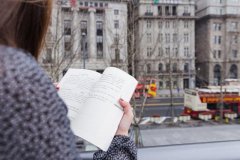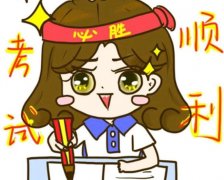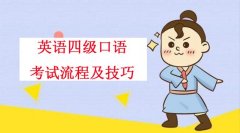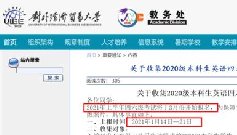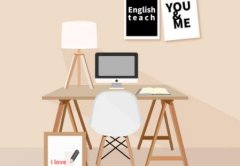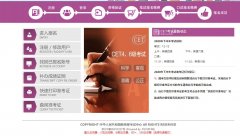Anyone who sees a special type of airplane with its turning wings knows it is a helicopter. One of the helicopter’s most important (11) is its ability to fly as slowly as it likes. It can do more than that. It can move backwards.(12) and side-ways. It can also stay in the air without(13) at all. Above all it can move up and down in a completely (14) line: the ability to take off and land is the most(15) .For in this way it can deliver goods and (16) to places which could not possibly be reached by (17) planes. It can land in a very small field. It can land on a road, or on a small shop.
(18) .They are used for loading ships and for building things of all kinds. The big oil companies use them for sending supplies to men searching for oil under the sea.(19) .Every day somewhere in the world lives are saved by helicopters.(20)
. Ordinary airplanes cannot land in the center of cities. Helicopters can. In New York, there is a helicopter service between the three big airports. London, too. Has one to connect with London Airport. This could have a very important effect on air travel in Britain.
Model Test Four
Section A
1.
A. In a post office.
B. In an apartment.
C. In a department store.
D. In a drug store.
2.
A. To go to the shops.
B. To lend him her umbrella.
C. To say sorry to him.
D. To buy a pen for him.
3.
A. These watches are made in Switzerland.
B. These watches are newly made.
C. Most people can afford these watches.
D. No one would like to live here.
4.
A. She takes it as a kind of exercise.
B. She wants to save money.
C. She loves doing anything that is new.
D. Her office isn’t very far away.
5.
A. Shop assistant.
B. A telephone operator.
C. A waitress.
D. A clerk.
6.
A. She doesn’t look as young as she did ten years ago.
B. She has not changed at all.
C. She wears glasses and has short hair.
D. She wears long hair and no longer has glasses.
7.
A. At 8:00.
B. At 7:20.
C. At 7:30
D. At 7:13.
8.
A. Because he would graduate from a school.
B. Because he wanted to enter a university.
C. Because he was sure he would get the highest score.
D. Because he was looking for a job.
9.
A. He liked the job because it was interesting.
B. He didn’t like the job because it kept him busy.
C. He didn’t like the job because it wasn’t interesting.
D. He liked the job because he didn’t have a home.
10.
A. He is excited.
B. He is sick.
C. He is fighting with his parents.
D. He is playing.
Section B
Passage 1
11.
A. Coins.
B. Salt.
C. Animals.
D. Cows.
12.
A. Romans.
B. Americans.
C. Indians.
D. Chinese.
13.
A. Today most coins are round.
B. Things highly valued by everybody could serve as money among primitive people.
C. We know very little about money.
D. How coins came into use.
Passage 2
14.
A. Milly was probably her secret sweetheart.
B. The farmer was threatening her.
C. She was curious about who Milly was.
D. She was a doctor.
15.
A. It was raining.
B. It was clear.
C. It was snowing.
D. It was cloudy.
16.
A. The farmer’s secret sweetheart.
B. The farmer’s mother.
C. The farmer’s wife.
D. The farmer’s sister.
Passage 3
17.
A. Original paintings.
B. Art books.
C. Reproductions of famous paintings.
D. Handicrafts.
18.
A. A method of making toys.
B. A new library system for children.
C. A method of selling toys.
D. A new library system for adults.
19.
A. A toy library.
B. A science library.
C. An art library.
D. A record library.
20.
A. Books to read.
B. Paintings.
C. A place to receive education.
D. A place to meet and play with other children.
Model Test Five
1.
A. To go to the concert.
B. To make a plan.
C. To visit her aunt.
D. To buy tickets.
2.
A. Before she was ten she moved to Shanghai.
B. After she was ten she moved to Shanghai.
C. She has never been to Shanghai.
D. She was born in Shanghai.
3.
A. She is unhappy with her work.
B. She wonders what job the man does.
C. She doesn’t know what the man means.
D. She agrees to work on another day.
4.
A. They should buy a new typewriter.
B. They should not buy a new typewriter.
C. They should employ a new typist.
D. Both A and C.
5.
A. He had lost the pen.
B. He had bought the wrong pen.
C. He had forgotten to bring the pen.
D. He was not able to bring the pen.
6.
A.13. B.65. C.78. D.52.
7.
A. Doctor and patient.
B. Father and daughter.
C. Teacher and student.
D. Classmates.
8
A. Noisy.
B. Cruel.
C. Terrible.
D. Exciting.
9.
A. They want to go downtown.
B. He wants to go to the park, but she doesn’t.
C. He doesn’t know where to park the car.
D. He wants to find out where the park is .
10.
A. Manager.
B. A retired worker.
C. A dentist.
D. A store keeper.
Section B Compound Dictation
When young people get their real jobs, they may face a lot of new,(11) situations. They may find that everything is different from the way things were at school. It is also possible that they will feel (12) in both(13) and social situations.(14) ,they realize that university classes can’t be the only(15) for all of the different situations that appear in the working world.
Perhaps the best way to learn how to (16) in the working world is to (17) a worker you admire and observe his behavior. In doing so, you’ll be able to see what it is that you admire in this person.(18) .Perhaps even more important,you will be able to see what his approach to everyday situations is .
(19) ,you should be asking yourself whether his behavior is like yours and how you can learn from his response to different situations.(20) .
 导航
导航

